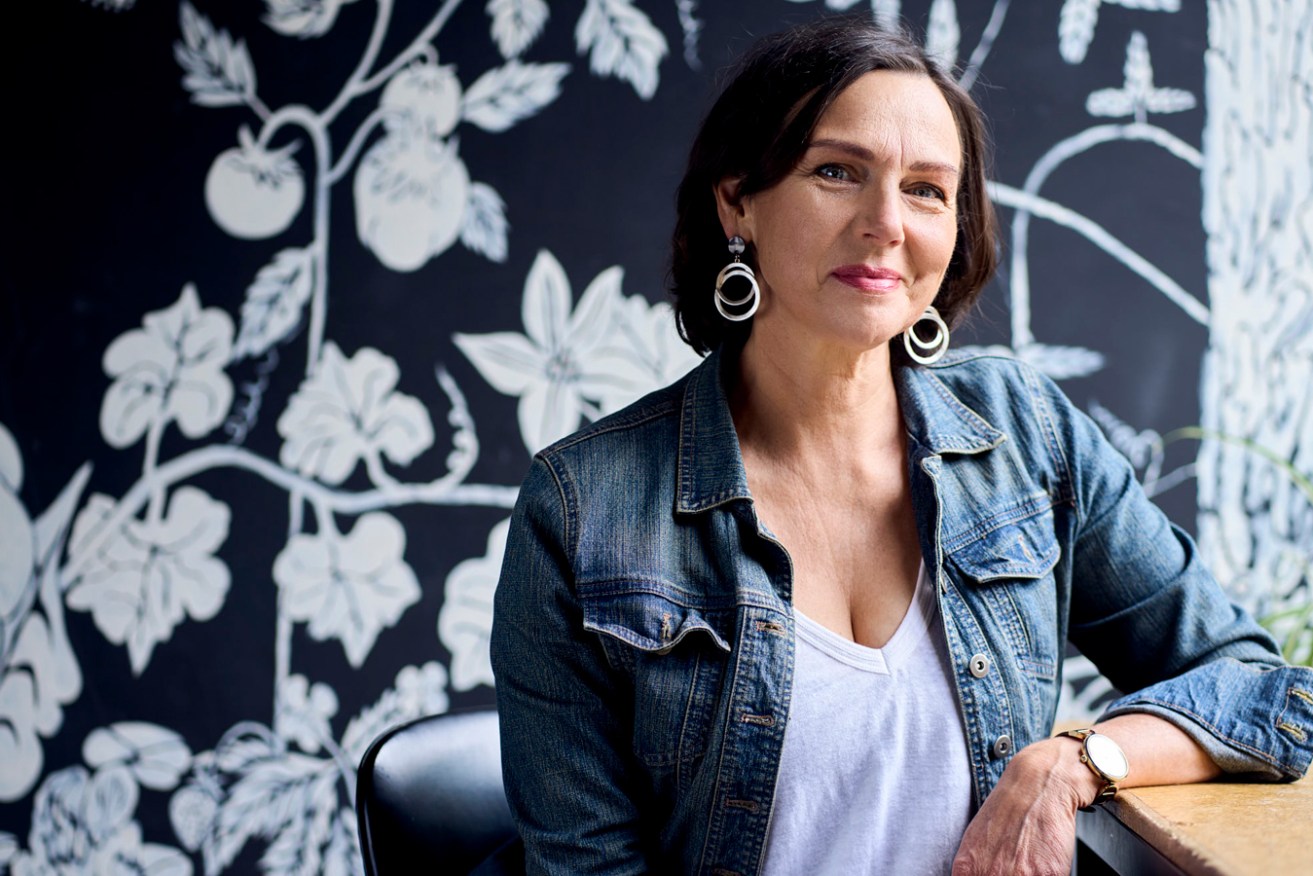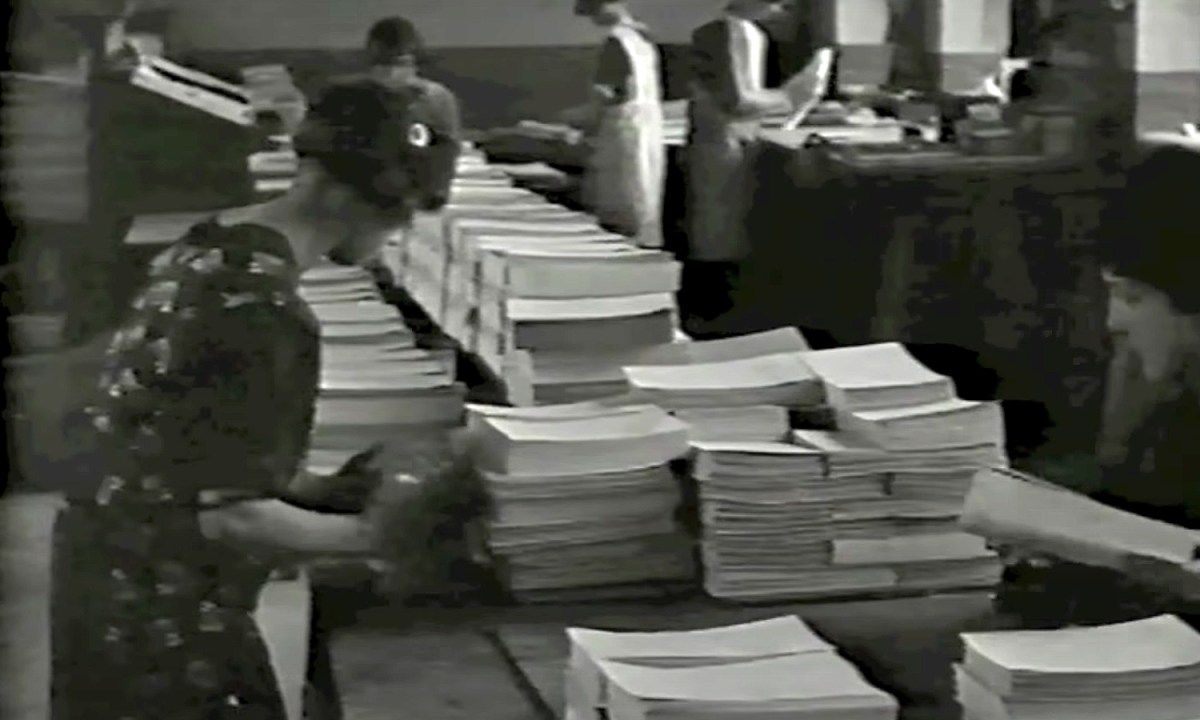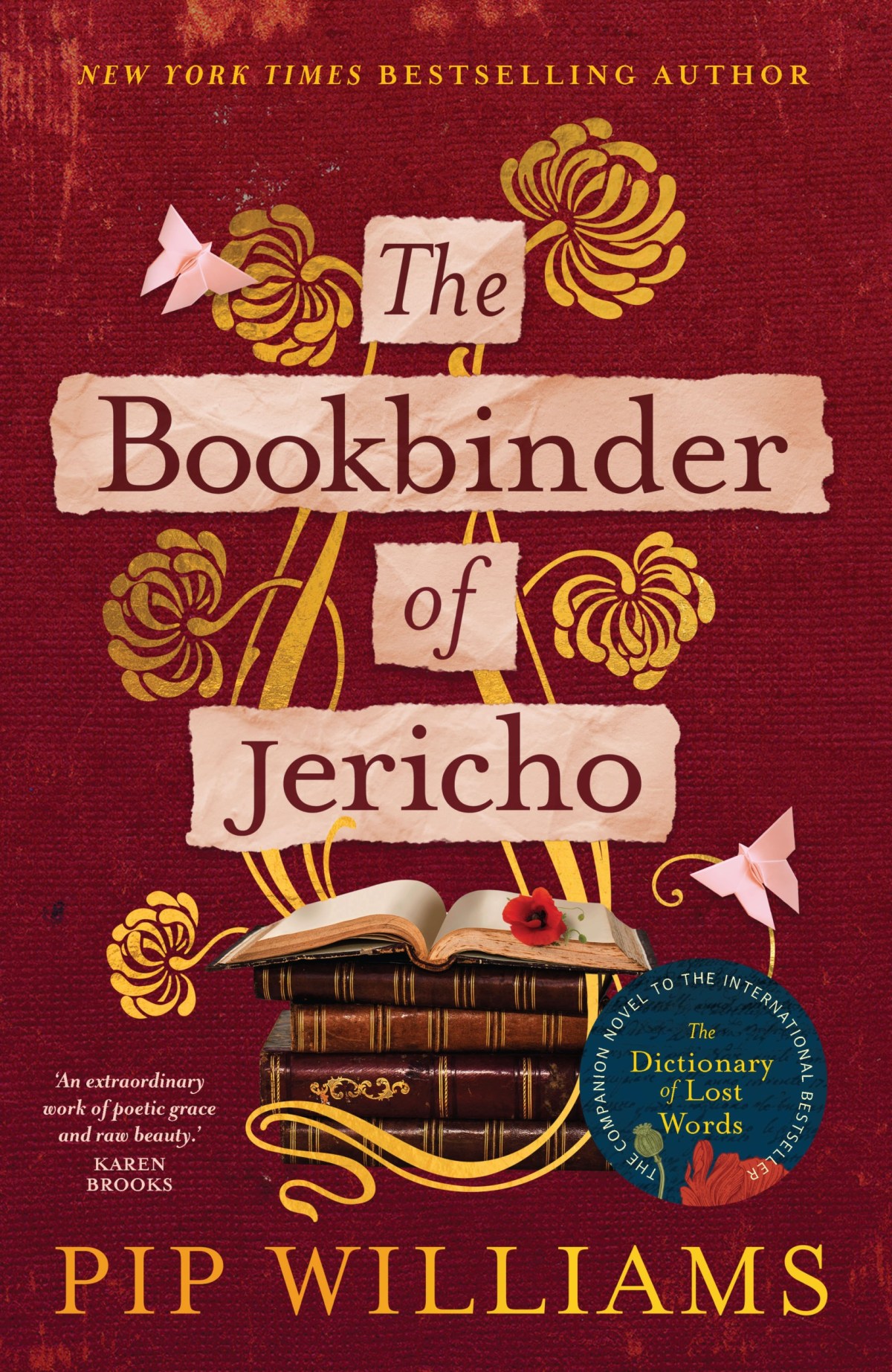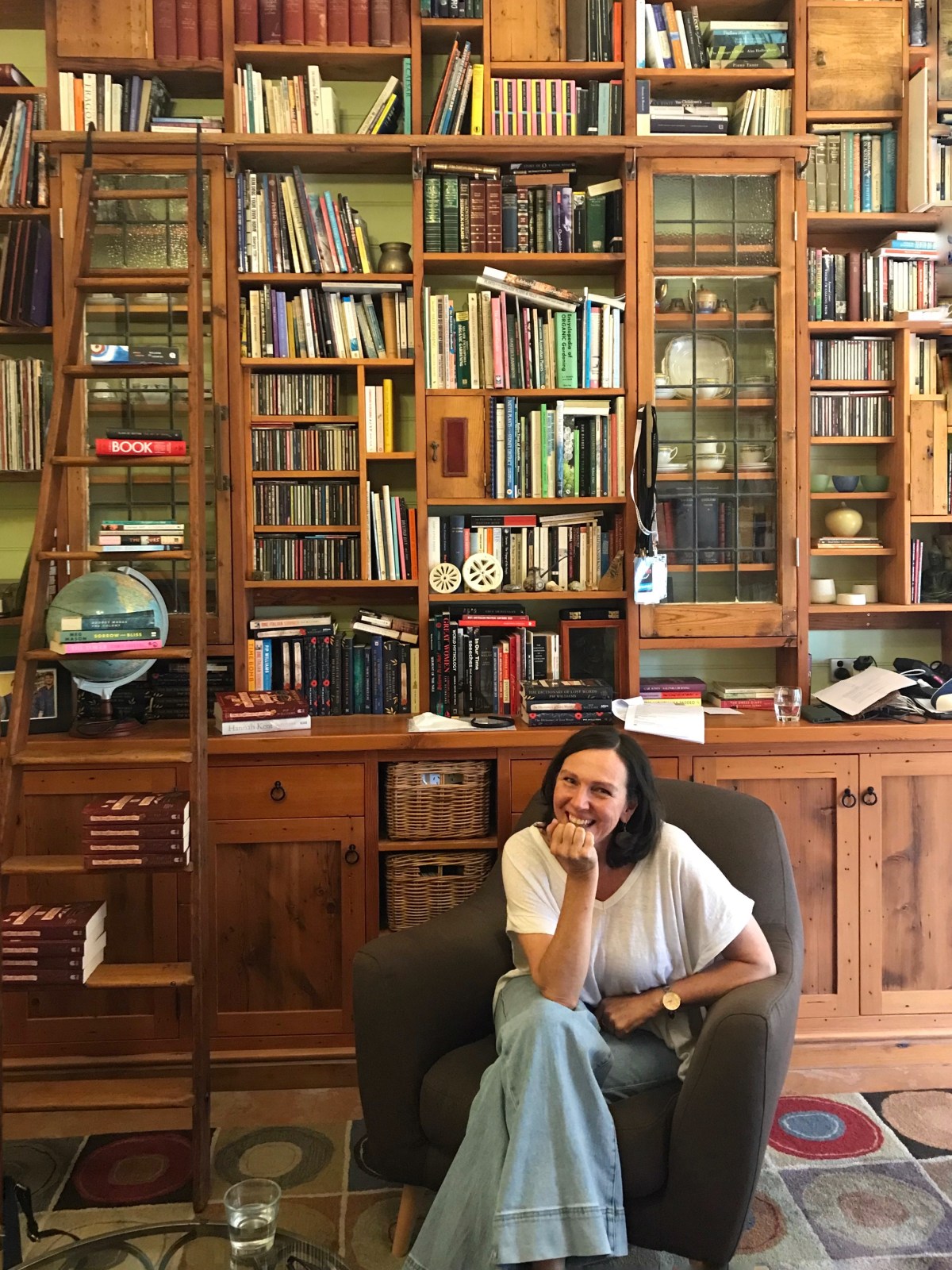Beyond words: Pip Williams on her new novel The Bookbinder of Jericho
Three years after The Dictionary of Lost Words became a ‘lockdown sensation’, Adelaide Hills author Pip Williams talks to InReview about her new historical novel – which seems destined to be another bestseller.

Adelaide Hills author Pip Williams blends fact and fiction in her new novel 'The Bookbinder of Jericho'. Photo: Andrew Goosen / supplied
Pip Williams had the idea for her second novel well before her phenomenally successful debut The Dictionary of Lost Words hit the shelves and ratcheted up bestseller lists.
The Adelaide Hills author was in Oxford doing research for Dictionary, which tells a story based around “women’s words” discarded by the men working on the first Oxford English Dictionary in the late 19th and early 20th century, when she became interested in the women who worked in the bindery at Oxford University Press.
There was little evidence of these women’s labours in the archives, but Williams learned that the bindery was split into what were called the “girls’ side” and the “men’s side”, with the women responsible for folding the sheets of paper into sections, gathering them up in the correct order and sewing them – “all the things that are invisible when you pick up a book” – while the men worked on the covers and gilding.
She also came across a wonderful silent film, made in 1925 and titled The Oxford University Press and the Making of a Book, which offers a rare glimpse of the work carried out in the bindery.
“It goes through all the processes that are part of making a book… then there’s this gorgeous piece of footage of this woman, and to me it looks so graceful as she walks along the gathering bench and gathers the sections into her arm… you realise she’s done this thousands of times and she’s developed a kind of movement that just flows.
“And I thought then, ‘I wonder if she ever reads it’. That was the idea for the book: this woman who is constantly in contact with the knowledge that is being developed at Oxford University, the most prestigious university in England, and she’s in contact with all the knowledge of these scholars and so on, and I was curious about whether she ever engaged with it. Because she had access to it, but in a very roundabout way.”

A still from the 1925 film showing a woman gathering sheets in the Oxford University Press bindery.
While The Dictionary of Lost Words centres on Esme, who grows up in the Scriptorium where her father is one of the lexicographers gathering words for the Oxford English Dictionary, Williams’ new book, The Bookbinder of Jericho, follows Peggy and her twin sister Maude, two young working-class women working in the Oxford University Press bindery at the outset of World War I.
It comes exactly three years after Dictionary was published in March 2020, just a few days before the national COVID-19 lockdown. Despite the pandemic forcing the cancellation of all the live events planned to mark its launch, the novel went on to become a world-wide bestseller, with more than 300,000 copies sold in Australia alone. The Dictionary of Lost Words is now being turned into a stage play set to premiere in Adelaide in September, and will also be adapted for a television series.
All of which might be expected to create a certain amount of tumult in the life of a debut novelist. But sitting in a book-filled living space in the straw-bale extension of the Adelaide Hills home she has shared with her partner Shannon and two sons since moving from Sydney’s Manly two decades ago, Williams remains remarkably grounded.
“We’d done the tree change 20 years ago and have been building up the life we wanted to live long before I published the book,” she says, when asked how the success of Dictionary impacted her family.
“I mean, it’s a really lovely thing, but… we have worked for decades to get to where we are, slowly and incrementally, and then this comes along and it’s a lovely feeling in a way knowing that nothing really drastic is going to change.”
 Nonetheless, she has a packed schedule of launch events and touring planned to coincide with her highly anticipated follow-up, and it seems almost certain that The Bookbinder of Jericho – described as a companion novel to The Dictionary of Lost Words and set in the same world – will follow a similar trajectory up the bestseller lists.
Nonetheless, she has a packed schedule of launch events and touring planned to coincide with her highly anticipated follow-up, and it seems almost certain that The Bookbinder of Jericho – described as a companion novel to The Dictionary of Lost Words and set in the same world – will follow a similar trajectory up the bestseller lists.
The story begins in 1914, as Britain declares war on Germany and young men are signing up in droves to join the fight, emptying out workplaces including the press. It is women like Peggy and Maude, who live together on a narrowboat on a canal in Oxford’s Jericho following their mother’s death, who step into the breach to help “keep the nation running”.
Williams evokes the sights, sounds and smells of the bindery in a way that transports readers to this unfamiliar yet tantalising world. Maude – who has a form of echolalia and would today be considered neuro-diverse – is largely content with her life, but Peggy is more ambitious, dreaming of one day studying at university yet forced to break the rules just to read the books she is binding.
“I can’t even remember when I decided to have twins as part of the narrative… but there needed to be barriers in the way of Peggy’s desire to learn,” Williams explains.
“Of course, there’s the obvious barriers – she’s female, she’s working class, she’s not welcome or encouraged to go beyond primary school – but I felt like I needed something else that emotionally would hold her back, so Maude is that person, for a whole lot of reasons.”
There is some overlap in the timelines of The Dictionary of Lost Words and The Bookbinder of Jericho, and several characters from the first novel – including the actor and suffragette Tilda – reappear in the latter. Both books are also built on what the author describes as a scaffold of history, incorporating actual places, events, historical figures and texts.
A key narrative thread in the new novel is the arrival of traumatised refugees from Belgium following its invasion by Germany, which impacts the lives of the twins and the wider Oxford community. Amid the broader themes, a romantic love interest also emerges.
Williams, a former social scientist, relishes the research required for her historical novels. After the lockdown triggered by the COVID pandemic (which, coincidentally, has echoes of the Spanish flu that breaks out at the end of period when The Bookbinder of Jericho is set), she was finally able to return to Oxford when the archives reopened last June. She says she is also indebted to the State Library of South Australia, and in particular bookbinder and senior conservator Peter Zajicek.
it was so important to get the original books, so I knew what my character was holding, what she was reading
The State Library has a full set of the first edition of the Oxford English Dictionary, which proved invaluable for The Dictionary of Lost Words, as well as books such as The Complete Works of William Shakespeare, referenced in the opening section of The Bookbinder of Jericho as Peggy reads the last line of the first page of the preface during her folding work in the bindery and becomes desperate to know how the unfinished sentence ends.
“The book wouldn’t be what it is without the State Library… I can always look up the words online, but I can’t feel the journal, I can’t feel the paper, I can’t see one essay in relation to other essays,” Williams says.
“And for this book that was really important, because my character is handling all of this… that’s why, for me, it was so important to get the original books, so I knew what my character was holding, what she was reading; I knew where the last line of a page was.”

The bookshelves in Pip Williams’ home were built from recycled timber by her partner Shannon. Photo: Suzie Keen
Where possible, Williams also tries to buy an original edition of the books that influence her novels. Several – including volumes one and two of Shakespeare’s England (published in 1916 at Oxford University Press) and two copies of The Oxford Book of German Verse – sit in their own section among the hundreds of books on the impressive floor-to-ceiling bookshelf in her home. When she lifts them out, coloured post-it notes are visible between the pages, marking sections referenced in her writing.
The Bookbinder of Jericho is structured around five texts that Peggy is working on in the bindery and which serve to further fuel her intellectual curiosity.
All these books were published during the time Bookbinder is set. One of the most intriguing is Robert Burton’s The Anatomy of Melancholy – a 1500-page tome in which the Oxford don attempts to understand melancholy through literature, art, mythology and psychology – while others include the Oxford Pamphlets, which can also be found at the State Library.
The pamphlets were written by UK scholars and thinkers about different aspects of the war. “I read some of these, especially [Australian-born scholar] Gilbert Murray’s, and you could just swap Germany for Russia, and Belgium for Ukraine, and the rest of the essay could stay exactly the same. It was fascinating.”
Williams says she came across the five texts “quite serendipitously” during her research.
“In a way, I came across them in my work just like Peggy would have come across them when she was doing her work. And so I engage with the book, and my engagement with the book then seeps into the way I write Peggy’s engagement with the book… it’s this sort of circular, mirrored experience.”

Bestselling novelist Pip Williams: ‘Every word has been written in a café.’ Photo: Andre Goosen
Williams is already working on her next novel, though she is reluctant to give away too much detail at this early stage, except to say it is “much more contemporary and closer to home”. She also has an idea for another historical novel in her head.
Sitting in her lovely Hills home, where she appears to be spoiled for choice when it comes to writing nooks, it would be remiss not to ask where she crafts her prose.
“Let me show you my beautiful writing room,” she answers with a laugh, getting up and leading the way through to an inviting, tranquil space with a view out to the garden.
“Shannon built it so I can write. It’s gorgeous – stone and straw bale and green and lovely. I do not write a word; I cannot write in here… it’s too quiet. I feel like the pressure is too much. The purpose-built writing space, the silence…
“Before I actually started writing, I always wanted to be a writer but never started because the conditions weren’t perfect; well, then the conditions became perfect and it was stifling; it was too intimidating.
“So I actually just write at my local cafés… every word has been written in a café. It has to be a busy café, because a singular conversation would cut through, but when it’s really busy and loud it’s fantastic. I think it’s because I’m a real introvert, but my favourite place is being alone in a crowd, and that’s what cafés do. So I feel like I’m part of the dynamism of life… but I can retreat very easily into my own quiet space in my head.”
The Bookbinder of Jericho is published on March 28 by Affirm Press.




